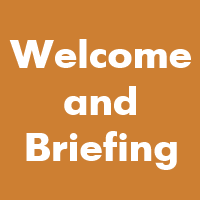










Welcome to "THE VERDICT: Tasmania 2018" homepage, hosted here at kortjackson.org! Here you will find information regarding the election that has been proscribed by state law (and the date chosen by the premier) to take place on March 3, 2018 to reconstitute the Tasmanian House of Assembly. The House of Assembly is comprised of twenty-five (25) members, with each division electing five (5) members each. The divisions are coterminous with the boundaries of the federal divisions of Tasmania, and share the same names: Bass, Braddon, Denison, Franlin and Lyons. To obtain a majority, a party needs thirteen (13) seats to gain majority government. However, as Tasmania is one of two Australian polities to use the Hare-Clark System (see the separate page link above), Tasmania has usually elected narrow majority governments or voted a Assembly with no official control - a hung parliament, requiring deals to secure (at a minimum) confidence of the government and supply (the budget) to govern.
So, how did we get to this election?
In 2010, The Tasmanian Labor government had been in office since 1998 in majority government. Jim Bacon proved to be a fairly popular Premier, and won a second mandate in 2002, only to step down in 2004 due to being diagnosed with lung cancer, a disease that would lay claim to his life just mere months after his resignation. Paul Lennon, elected by the ALP parliamentary caucus to be the new premier, did not hold the same popularity as his predecessor, and pollsters and pundits alike though Labor would struggle to win another term in 2006. To their suprise, Lennon pulled off a stunning upset, winning a third majority government mandate. However, scandals and a dramatic reduction in his popularity rating forced Paul Lennon to step down, and the ALP caucus selected David Bartlett as Premier.
Bartlett, in his first go around as the Premier of Tasmania at the 2010 election saw a loss of four seats: three to the Liberals (the conservative party) and one of the Greens. The ALP majority government was gone, and the Assembly was officially back in hung parliament territory for the first time since the 1996 election. Initially, Bartlett contacted the Governor of Australia (who is required to commission the Premier after every election) to request he commission the opposition leader (Will Hodgman of the Liberals) to be the new Premier, as although Labor and Liberal was tied with ten seats each (Greens held the other five), the Libs got more votes. The Governor declined Bartlett's request and commissioned Bartlett to form government. Bartlett eventually succeeded in forming a Labor-Green coalition government (with the Greens in ministerial roles). Barlett would resign in early 2011, with his Deputy Premier Lara Giddings becoming Tasmania's first female Premier.
While Lara Giddings did decently at points as Premier, the length of the Labor Government (16 years by the time the 2014 elections were held) as well as the surging "better Premier" ratings of Will Hodgman (of the Hodgman dynasty in Tasmania, consisting of his grandfather, father and himself as members of the Parliament of Tasmania throughout the years) eventually led pundits to believe that the 2014 election would bring a change in government for the first time since 1998. Giddings' ratings continued to sour, and as the election date approached, she opted to dissolve the formal minority government coalition and go into elections alone without a government pre-arrangement. The 2014 election saw the Tasmanian Liberals gain five seats to fifteen (15) seats, more than enough for a majority. Labor was reduced to seven seats, the Greens to three. While the Libs only had two seats more than the bare majority, fifteen seats is considered to be well in landslide territory.
With few exceptions, the Hodgman government has governed without major controversy, and Labor changed leaders twice (Giddings resigned after her defeat as Premier, and Bryan Green resigned just a little over three years as opposition leader, leading to Rebecca White becoming the new Labor leader and Opposition leader in Tasmania. Under Rebecca White, Labor's polling improved, leading the ruling Liberals to postpone calling an early election until the Labor surge subsided. Until the very end of the 2018 campaign, the Tasmanian Liberals have ran a solid campaign with few misteps (though their last minute non-public disclosure to relax the Tasmanian gun laws might partially backfire), whereas the Labor campaign was riddled with careless misteps and errors.
Tasmania's dominant history of electing Labor to government is so ingrained in the political culture, only one Liberal Premier has ever enjoyed back-to-back majority governments. But if the polling is to be believed, Will Hodgman is about to double that exclusive club... but only just, and a majority government is not necessarily certain for the Libs.
Picture of Parliament House, Hobart is released to the Public Domain by it's Author, and is not subject to copyright.
